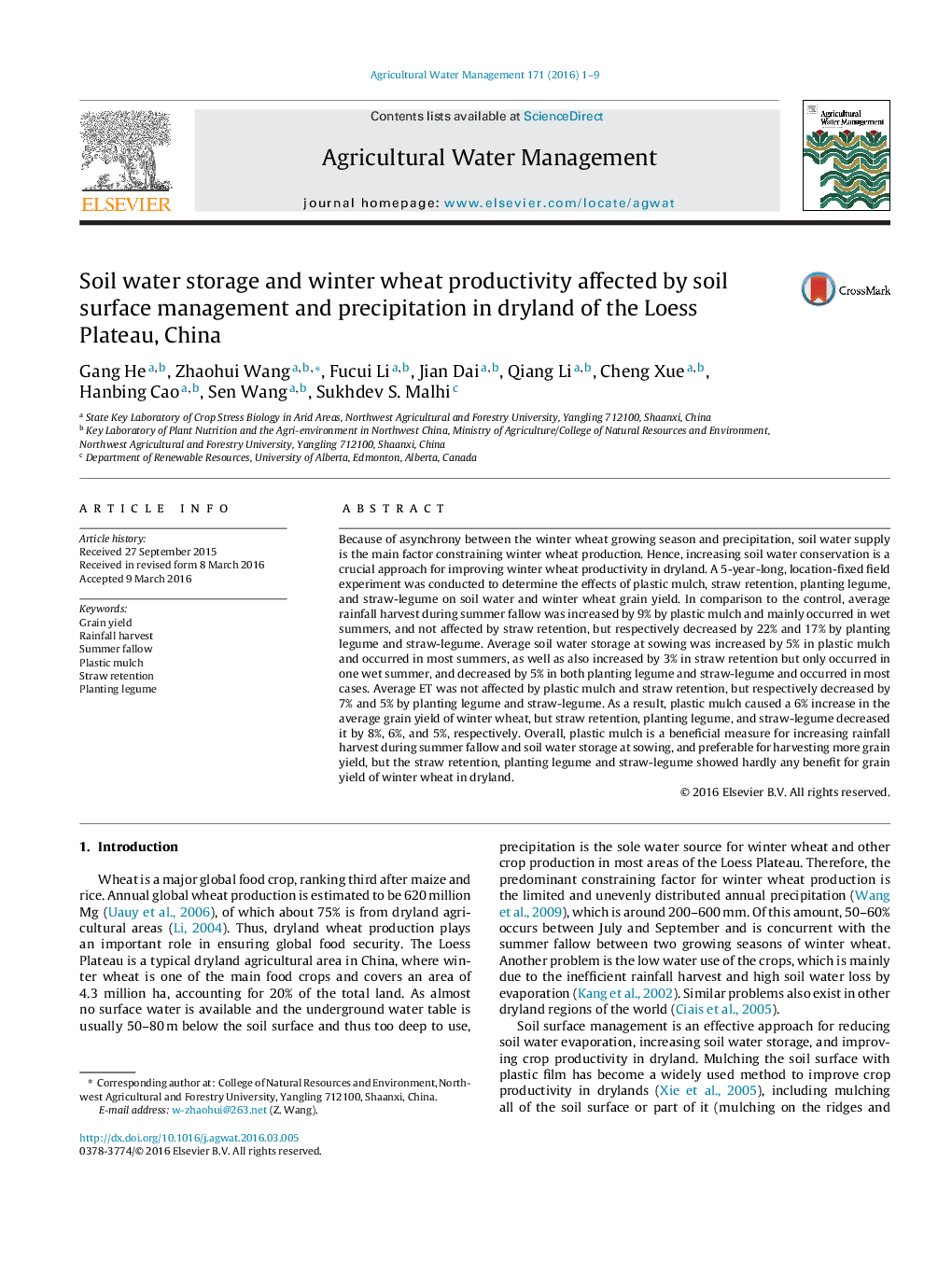| Article ID | Journal | Published Year | Pages | File Type |
|---|---|---|---|---|
| 6363473 | Agricultural Water Management | 2016 | 8 Pages |
Abstract
Because of asynchrony between the winter wheat growing season and precipitation, soil water supply is the main factor constraining winter wheat production. Hence, increasing soil water conservation is a crucial approach for improving winter wheat productivity in dryland. A 5-year-long, location-fixed field experiment was conducted to determine the effects of plastic mulch, straw retention, planting legume, and straw-legume on soil water and winter wheat grain yield. In comparison to the control, average rainfall harvest during summer fallow was increased by 9% by plastic mulch and mainly occurred in wet summers, and not affected by straw retention, but respectively decreased by 22% and 17% by planting legume and straw-legume. Average soil water storage at sowing was increased by 5% in plastic mulch and occurred in most summers, as well as also increased by 3% in straw retention but only occurred in one wet summer, and decreased by 5% in both planting legume and straw-legume and occurred in most cases. Average ET was not affected by plastic mulch and straw retention, but respectively decreased by 7% and 5% by planting legume and straw-legume. As a result, plastic mulch caused a 6% increase in the average grain yield of winter wheat, but straw retention, planting legume, and straw-legume decreased it by 8%, 6%, and 5%, respectively. Overall, plastic mulch is a beneficial measure for increasing rainfall harvest during summer fallow and soil water storage at sowing, and preferable for harvesting more grain yield, but the straw retention, planting legume and straw-legume showed hardly any benefit for grain yield of winter wheat in dryland.
Related Topics
Life Sciences
Agricultural and Biological Sciences
Agronomy and Crop Science
Authors
Gang He, Zhaohui Wang, Fucui Li, Jian Dai, Qiang Li, Cheng Xue, Hanbing Cao, Sen Wang, Sukhdev S. Malhi,
